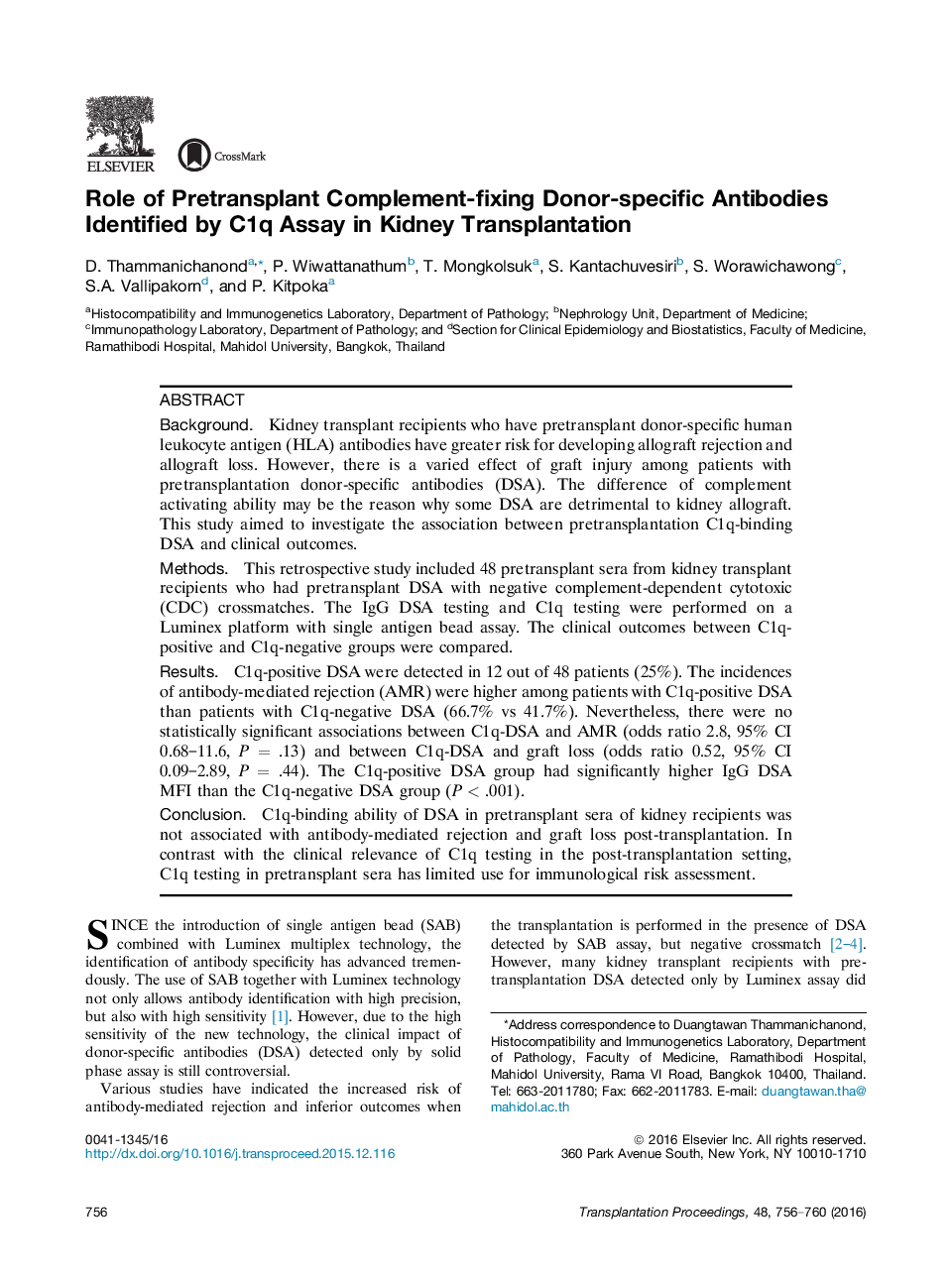| Article ID | Journal | Published Year | Pages | File Type |
|---|---|---|---|---|
| 6246383 | Transplantation Proceedings | 2016 | 5 Pages |
â¢Although the role of C1q-binding de novo DSA in antibody-mediated rejection and transplant glomerulopathy has been described, the role of C1q-binding pretransplantation DSA remains unclear.â¢The correlation between pretransplantation C1q-binding DSA and clinical outcomes of kidney transplantation was investigated.â¢C1q-binding DSA in pretransplantation sera was not associated with antibody-mediated rejection and graft loss post-transplantation.
BackgroundKidney transplant recipients who have pretransplant donor-specific human leukocyte antigen (HLA) antibodies have greater risk for developing allograft rejection and allograft loss. However, there is a varied effect of graft injury among patients with pretransplantation donor-specific antibodies (DSA). The difference of complement activating ability may be the reason why some DSA are detrimental to kidney allograft. This study aimed to investigate the association between pretransplantation C1q-binding DSA and clinical outcomes.MethodsThis retrospective study included 48 pretransplant sera from kidney transplant recipients who had pretransplant DSA with negative complement-dependent cytotoxic (CDC) crossmatches. The IgG DSA testing and C1q testing were performed on a Luminex platform with single antigen bead assay. The clinical outcomes between C1q-positive and C1q-negative groups were compared.ResultsC1q-positive DSA were detected in 12 out of 48 patients (25%). The incidences of antibody-mediated rejection (AMR) were higher among patients with C1q-positive DSA than patients with C1q-negative DSA (66.7% vs 41.7%). Nevertheless, there were no statistically significant associations between C1q-DSA and AMR (odds ratio 2.8, 95% CI 0.68-11.6, PÂ = .13) and between C1q-DSA and graft loss (odds ratio 0.52, 95% CI 0.09-2.89, PÂ = .44). The C1q-positive DSA group had significantly higher IgG DSA MFI than the C1q-negative DSA group (PÂ < .001).ConclusionC1q-binding ability of DSA in pretransplant sera of kidney recipients was not associated with antibody-mediated rejection and graft loss post-transplantation. In contrast with the clinical relevance of C1q testing in the post-transplantation setting, C1q testing in pretransplant sera has limited use for immunological risk assessment.
